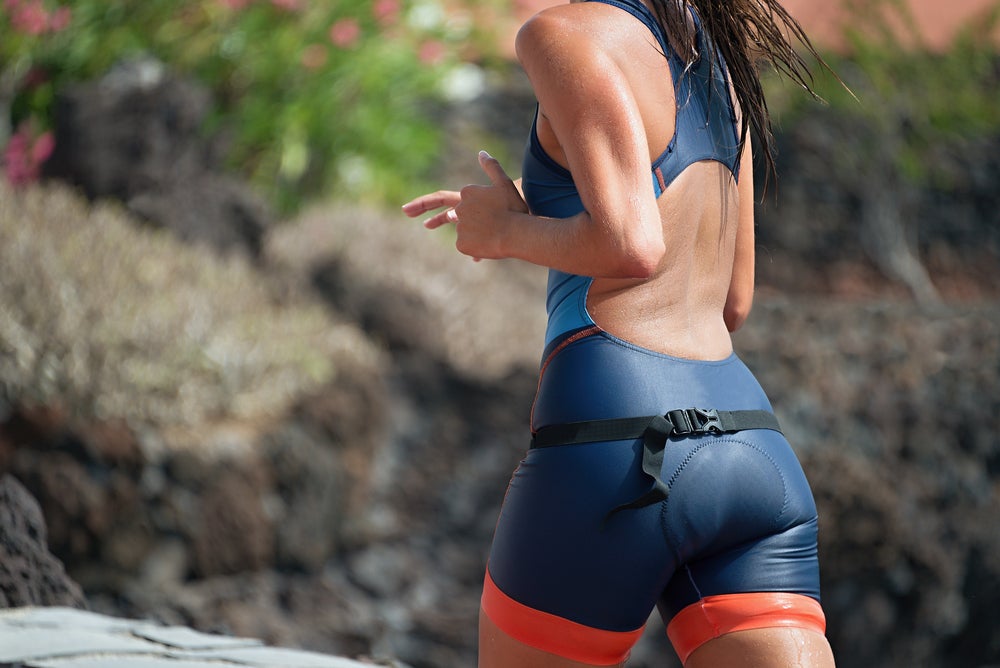Tri University: How to Pick the Right Coach

Photo: Shutterstock.com
Recent Penn State grad Kristin Goett dishes out advice for the U23 crowd (and the U23 at heart) in her Tri University column.
Kona fever have you dreaming big? Although it may seem as though these top-level athletes were born awesome, nearly all pro and most top age-group athletes have coaches. Coaches who’ve guided them through many a workout, day in and day out, and seen their athletes at their best and worst. (Ugly crying after a workout, anyone? No? Just me?).
Triathlon season in the United States is winding down, but that doesn’t mean you can’t be thinking ahead to what’s next for you—either as a way to procrastinate studying or ignore those calls from your mom. Thinking about getting some coaching this year? Let’s take a look at some factors to consider before jumping at the opportunity.
Know Thyself
To know what to look for in a coach, start by looking within yourself. Acknowledge what you value in yourself, your friends, and your family.
Some questions to consider include: Is it important to you to constantly communicate and receive feedback? How do you deal with criticism? Do you like to be told things bluntly, or is it easier to stomach over a longer conversation? Answering these self-assessment questions will give you a good starting point for what qualities you need from a coach. Be honest with yourself—you’ll be spending a lot of time communicating with your coach, so lying to anyone about your needs won’t get you very far, as in you literally won’t get out of bed to do the workout.
Level with Yourself
Leveling with yourself is an important thing to know how to do for many reasons. In this case, I literally mean to pick a level—of competition, that is. What type of racer are you? Weekend warrior, happy-go-lucky age grouper, elite age grouper, or aspiring pro are some typical classifications.
Now that your season is likely ending and you can no longer justify wearing compression socks in public (but definitely still do it, just for fun), it’s time to decide where you’d like to see yourself at this point next year. I know, commitment is scary, but you can’t ghost your triathlon goals. Understanding and being able to communicate to prospective coaches what level of competitor you are will be a huge deciding factor in the type of coach you would align with.
A Certificate Doesn’t Mean Certified
…just like your degree doesn’t mean you didn’t fudge up a few assignments and deadlines along the way. There are many coaches out there who may claim to be certified by multiple triathlon-related organizations, but don’t let those fancy, watermarked pieces of paper fool you, no matter how quality the paper may be.
To be a great coach is a state of mind, not a state of being certified. Factors like humor, openness, and communication skills, and, simply, how well you work together are often more important than ensuring they have the highest level certs.
Going Beyond the Finish Line
Usually, if you go just beyond the finish line, there’s a pretty good stockpile of food and, if you’re lucky, beer. That kind of “beyond the finish line” is pretty freakin’ great. What’s also great is when you are able to link up with a coach who understands that despite your chiseled bod and ability to pull all-nighters on the regular, you are not a robot. Newsflash: you are a student with responsibilities outside of the sport.
When talking to prospective coaches, pay extra attention to how they respond to your schedule and personal needs. If you like going out on Fridays with friends, say it without shame. If you need a day or two a week to sleep in, sing it loud for all to hear. Do you have a set budget that you cannot go over? Make that known and own it. You should feel no shame in discussing your personal needs beyond the finish line with a coach, and in turn, a coach should never make you feel bad for living a life outside of triathlon.
Just get ready, though, because when you start making the big bucks, you’ll probably have to cut back on those Friday nights. But only when you make that cash money. So you’ve probably got at least a few years. Food for thought.
How Do I Find a Coach?
Obviously, walk up to any fit-looking person on the street and just ask! Totally kidding. Start by reaching out to your network of fellow triathletes. If any friends already have coaches, ask if you could chat about what their experiences have been like and if their coaches have any resources for you.
Posting on social media can also help you out, but make sure you take any “I’m a coach! DM me!” responses with a grain of salt. Remember—just because someone says they are a great coach doesn’t mean they are automatically going to deliver rainbows and unicorns.
First thing first, rock your schoolwork… and then turn your attention to the awesome off-season you have ahead of you and the dream coach that can help you make it all happen.